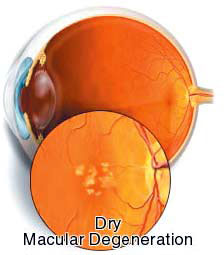| 2005 |

|
YEAR BOOK |
Waterford Institute of Technology
|
Macular Pigment Research Group (MPRG)
|

Age-related macular degeneration (AMD) is the leading cause of blind registration in the Western World, and will become increasingly prevalent as a result of increasing longevity. AMD affects the macula, the small part of the retina responsible for central vision, and consequently the ability to perform normal day-to-day activities such as reading, writing, watching television, driving and even the ability to recognise familiar faces. It is estimated that there are approximately 60,000 people affected by this condition in Ireland, with 12 million sufferers across Europe. Although the pathogenesis of AMD remains unclear, there is a growing consensus that cumulative blue light damage and/or oxidative stress play a role. A pigment, composed of two dietary carotenoids, lutein (L) and zeaxanthin (Z), accumulates at the macula where it is known as macular pigment (MP). MP is a blue light filter and a powerful antioxidant, and is therefore believed to protect against AMD.
It is the possible protective role of this pigment that is the focus of research by the Macular Pigment Research Group (MPRG) based at the Waterford Institute of Technology. One of the most interesting findings by the MPRG to date is the relative lack of the protective pigment in healthy middle-aged offspring of patients with AMD, which may predispose the children of AMD sufferers to this disease, and therefore appropriate dietary modification may prevent, or even delay, the onset of disease. Another study currently underway at WIT is investigating the apolipoprotein e4 allele status of persons with and without a family history of AMD, and intends to relate these findings to MP and lipoprotein profiles. Finally, the Celtic Age-Related Maculopathy Arrestation (CARMA) study is currently under way in the Waterford Regional Hospital and is being coordinated by members of the MPRG. This study, which is being run in collaboration with Queen's University Belfast, is investigating the putative beneficial effects of supplemental L and Z with co-antioxidants in 180 patients with AMD.
In brief, the MPRG's objective is to gain insight into the genetic and environmental bases of AMD, and to explore avenues of prevention, or delaying the onset, of this blinding disease.
Contact: Dr. Orla O'Donovan or Stephen Beatty,
Waterford Institute of Technology; E-mail: [email protected], [email protected]